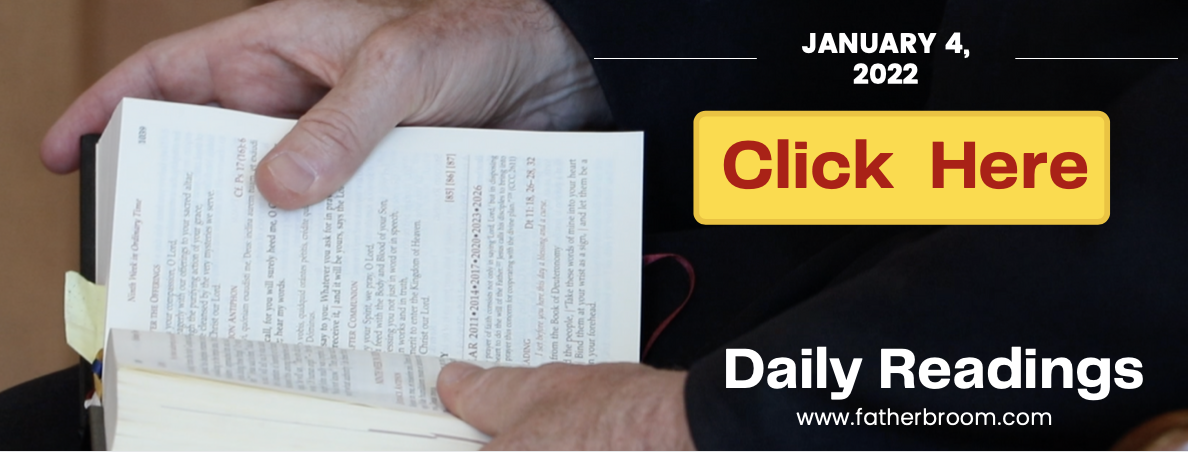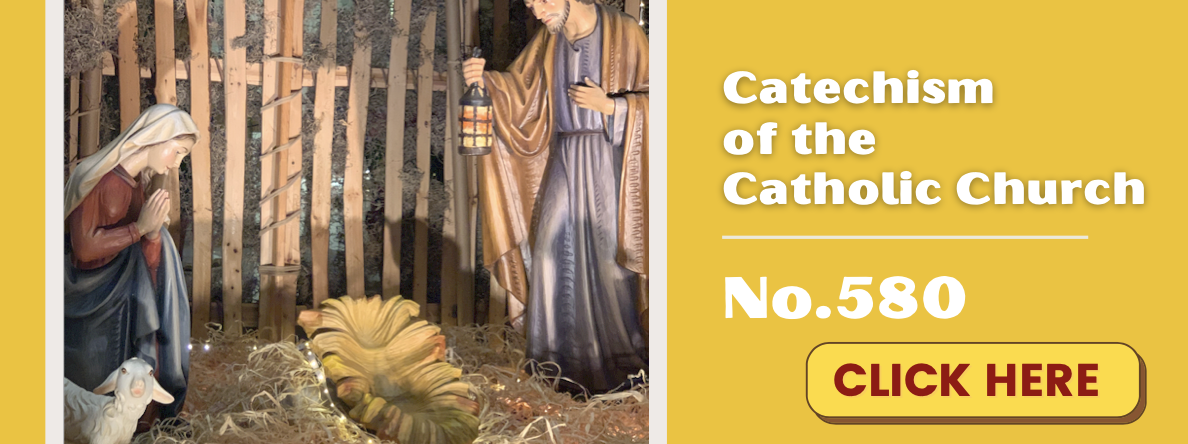Memorial of Saint Elizabeth Ann Seton, Religious



“For greater things you were born.” (Ven. Mother Luisita)
TUESDAY, JANUARY 5th Mk. 6:34-44 “When Jesus saw the vast crowd, his heart was moved with pity for them, for they were like sheep without a shepherd; and he began to teach them many things. By now it was already late and his disciples approached him and said, ‘This is a deserted place and it is already late. Dismiss them so that they can go to the surrounding farms and villages and buy themselves something to eat.’ But he said to them in reply, ‘Give them some food yourselves.’”
Three points to begin our reflection:
1) Jesus heart is moved with pity for them, for they are like sheep without a shepherd; and he begins to teach them many things. That is us! That is the Liturgy of the Word in every Mass. The priest reads the Gospel and breaks open its meaning for our lives in the homily.
2) When the disciples tell Jesus to let the people go so they can get something to eat, Jesus tells them to feed the people themselves, knowing full well it is beyond their ability to do so. This is for us as well. Jesus gave us the priesthood to change bread and wine into His Body, Blood, Soul and Divinity in the most Holy Eucharist, to nourish us on our way to our eternal home, Heaven.
3) Jesus also gave us good priests like Fr. Ed to continue opening our minds and hearts to the riches of the Eucharist so we will want to receive Jesus, providing we are in the state of grace, at least every Sunday, and hopefully every day! Let us delve into these riches!!!
PART ONE OF A TWO-PART MEDITATION – Part One today, Part Two tomorrow.
PART ONE: JESUS TRULY IS THE BREAD OF LIFE. SEVEN OF 15 BIBLICAL PASSAGES POINTING TO THE EUCHARIST… by Fr. Ed Broom, OMV
One of the many channels that can be utilized to augment our faith, devotion, and love for the greatest of all the Sacraments, the most Holy Eucharist, is by reading and meditating upon key Biblical passages, in the Old Testament as well as in the New Testament. The Old Testament presents symbols or what Bible scholars term Types, Biblical Typology of references or allusions to the Eucharist that become a reality in the New Testament. In other words, what is present in a hidden, mysterious, and symbolic form in the Old Testament breaks out in transparent Truth in the New Testament.
This being said, we will start with Old Testament Biblical types of the Mass, the Eucharist, and the priesthood which will lead us to the reality in the New Testament where the Eucharist—meaning Thanksgiving—was actually instituted by Jesus Himself at the Last Supper. Now let us delve deep into the infinite treasures, the infinite ocean of God’s presence in His living and penetrating Word, which we call the Bible!
OLD TESTAMENT REFERENCES TO THE EUCHARIST.
1. GENESIS Chapter 3:6. THE FORBIDDEN FRUIT. In this chapter we encounter Adam and Eve, our first parents, who were commanded NOT to eat the fruit of the tree in the middle of the Garden of Eden. They disobeyed by eating this fruit—first Eve, then Adam. This we call ORIGINAL SIN. Death entered the world through the sin of disobedience of our first parents by eating the forbidden fruit.
2. JOHN Chapter 6:35-54. THE BREAD OF LIFE DISCOURSE. Death came about by eating and disobedience. To the contrary, eternal life will come about by eating and obedience. The eating this time must come from the fruit of the tree of Calvary, which is the Body and Blood of Jesus. The Son of God Himself asserted: “I am the Bread of life. Whoever eats my Body and drinks my Blood will have eternal life and I will raise him up on the last day.” (Jn 6:35, 54) In a clear and unequivocal fashion, Jesus states that our salvation, our eternal life, depends upon eating Himself.
3. GENESIS Chapter 14:18-20 / HEBREWS 4: 14-15. BREAD AND WINE OFFERED BY MELCHIZEDEK. This mysterious figure of the past symbolizes Jesus the High Priest. Without the person of the priest, the Eucharist or Bread of Life cannot become a reality. The priesthood is essential for the whole reality of the Mass, the Consecration, the Eucharist, and Holy Communion. Let us pray for good and holy priests!
4. EXODUS Chapter 14:21-28. THE CROSSING OF THE RED SEA. The clear symbolism in this passage is that the Jews passed from slavery to freedom led by Moses their leader. They were freed from the oppression and slavery of the Egyptians. Their passage was through the RED SEA. In a parallel sense, sin is slavery in our lives. By shedding His RED BLOOD on the cross on Calvary that Good Friday, Jesus attained for us the true freedom of the sons and daughters of God. By receiving His Body and Blood we are strengthened, purified, and made strong so as to cross from this life to eternal life in heaven.
5. EXODUS Chapter 16:4. THE MANNA IN THE DESERT. The Israelites were famished from their long journey through the desert. God, through the instrumentality and leadership of Moses, rained down bread from heaven called manna—a word meaning “What is this?” Without eating, we are all destined to die on a human and natural plane. Likewise, if we do not nourish our souls with the Bread of Life, we are destined to die and perish for all eternity. The Manna in the desert is a symbol or type of the Holy Eucharist. Actually, Jesus in the Bread of Life discourse makes reference to Moses and the manna in the desert: “I am the bread of life. Your ancestors ate the manna in the wilderness, yet they died. But here is the bread that comes down from heaven, which one may eat and not die.” (Jn 6:48-50)
6. 1 KINGS Chapter 19:1-9. THE GREAT PROPHET ELIJAH. Fleeing for his life from the wicked Queen Jezebel and King Ahab, after one day’s journey, Elijah collapsed in a state of profound desolation. This translated to falling into a deep slumber. God sent an angel to Elijah to awaken the man of God. The angel presented bread for Elijah to eat, once and then a second time. After eating twice, Elijah walked forty days and forty nights from the strength that came from the bread. This bread communicated to Elijah a super energy to help him walk all the way to the holy mountain where he encountered God in the gentle breeze. Our journey towards the eternal mountain that we call HEAVEN is a long, perilous, tiring, and dangerous one. We need energy and strength to persevere on the journey. This all-powerful energy comes from Jesus, who is truly the Bread of Life and nourishment for the journey to our heavenly homeland.
7. PSALM 23. THE PSALM OF THE GOOD SHEPHERD. Possibly to the surprise of many, there are indeed symbolic Eucharistic overtones present in this Psalm. Yes! In what way? “You anoint my head with oil… my cup overflows… I believe I will dwell in the House of the Lord for years without end.” These three separate and distinct phrases certainly have Eucharistic overtones and represent symbols or types. Anointing refers to the priesthood necessary to celebrate the Mass. Cup refers to the Blood of Christ. House of the Lord refers to heaven—meaning, that if we nourish ourselves on the Bread of Life and the Cup of Salvation we will arrive at our eternal and permanent home: HEAVEN!!!
TO BE CONTINUED TOMORROW…
PART TWO: JESUS TRULY IS THE BREAD OF LIFE. FINAL EIGHT OF 15 BIBLICAL PASSAGES POINTING TO THE EUCHARIST… By Fr. Ed Broom, OMV